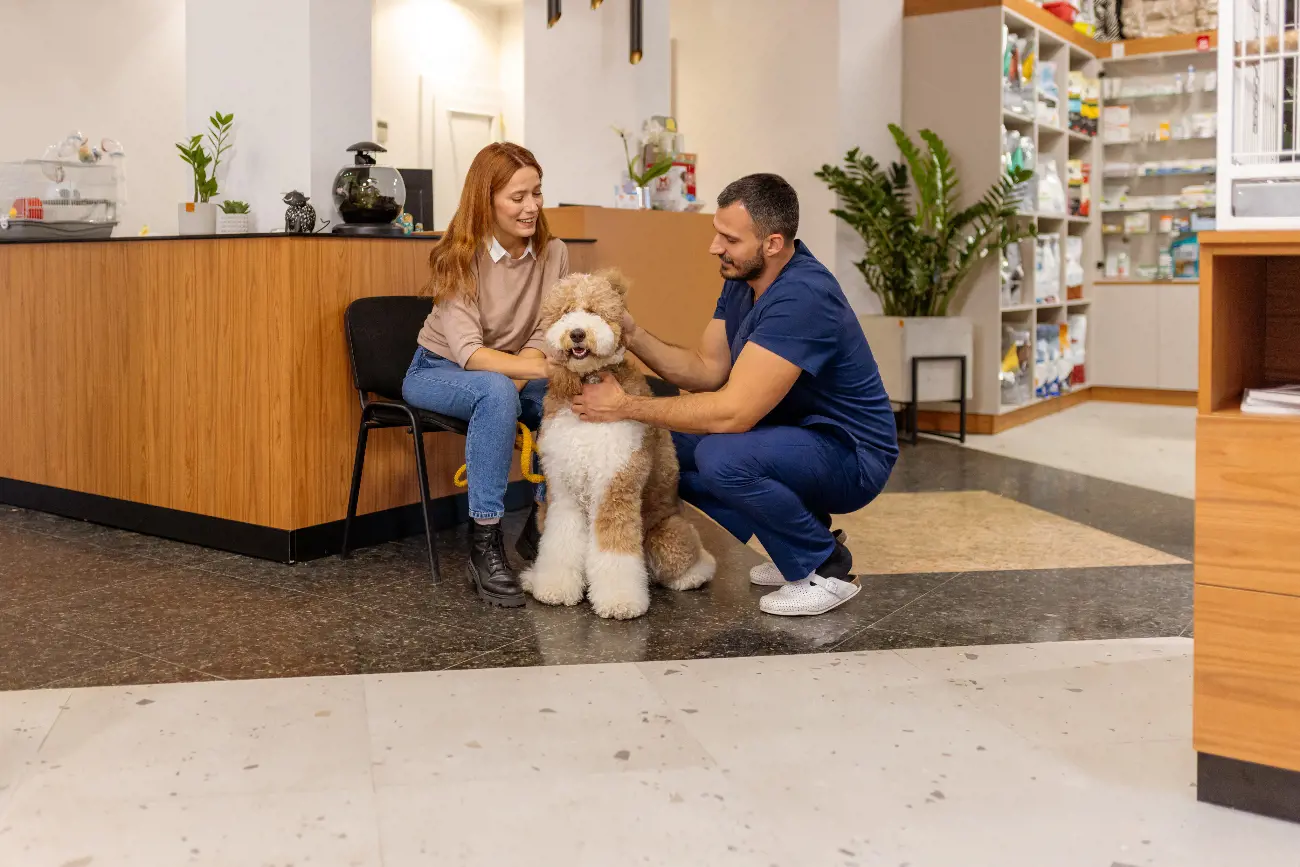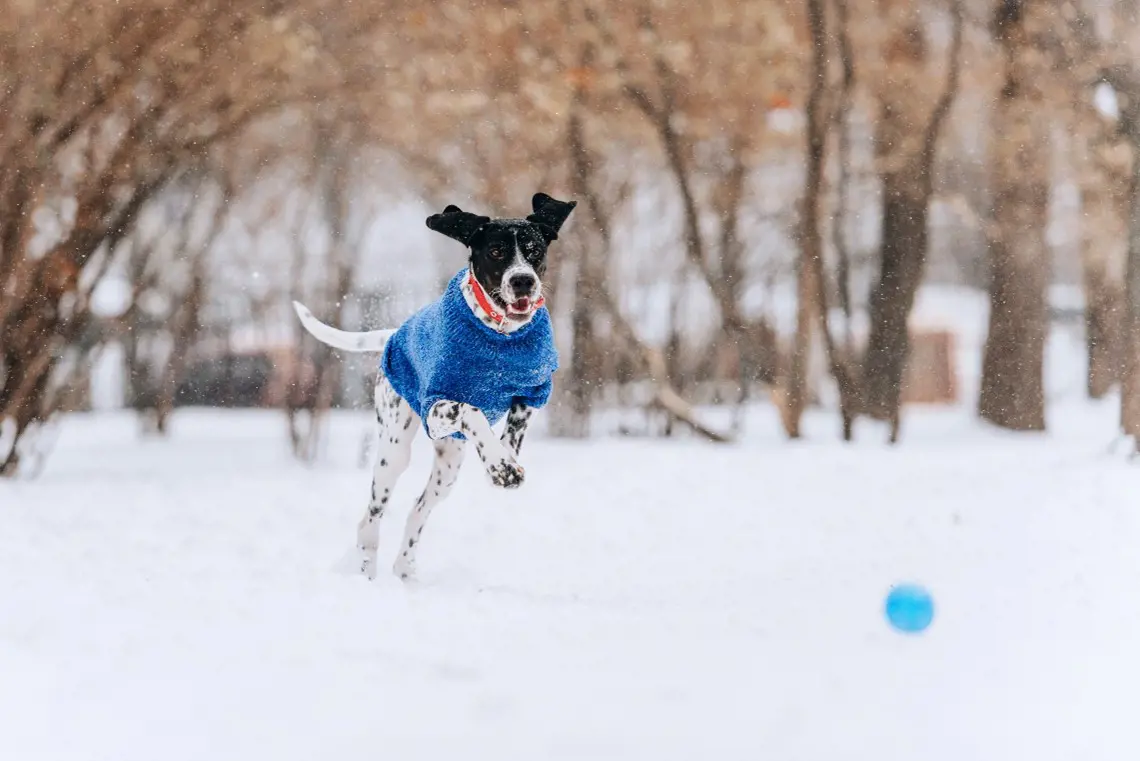What are the cheapest dog breeds to insure?
10th February, 2022
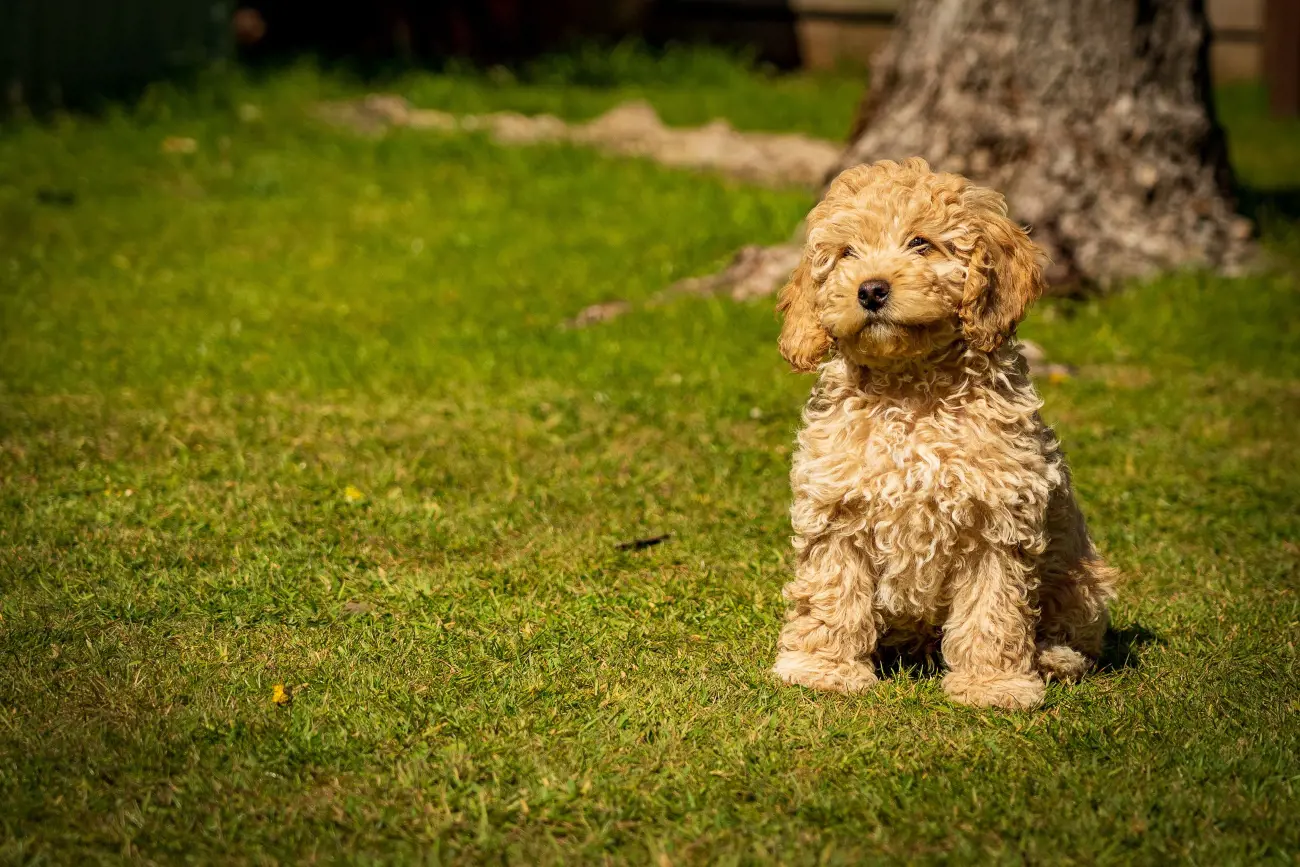
Welcoming your first dog into the household is an exciting experience. It's also, ideally, the culmination of some thorough research into what dog breed will best suit you and your household.
Owners choosing their first (or next) dog have many things to consider. Exercise needs, temperament, and likely health issues are three major factors.
Something else to think about, of course, is dog insurance. Some breeds will, quite simply, be cheaper to insure than others. Here are the least expensive dog breeds to insure.
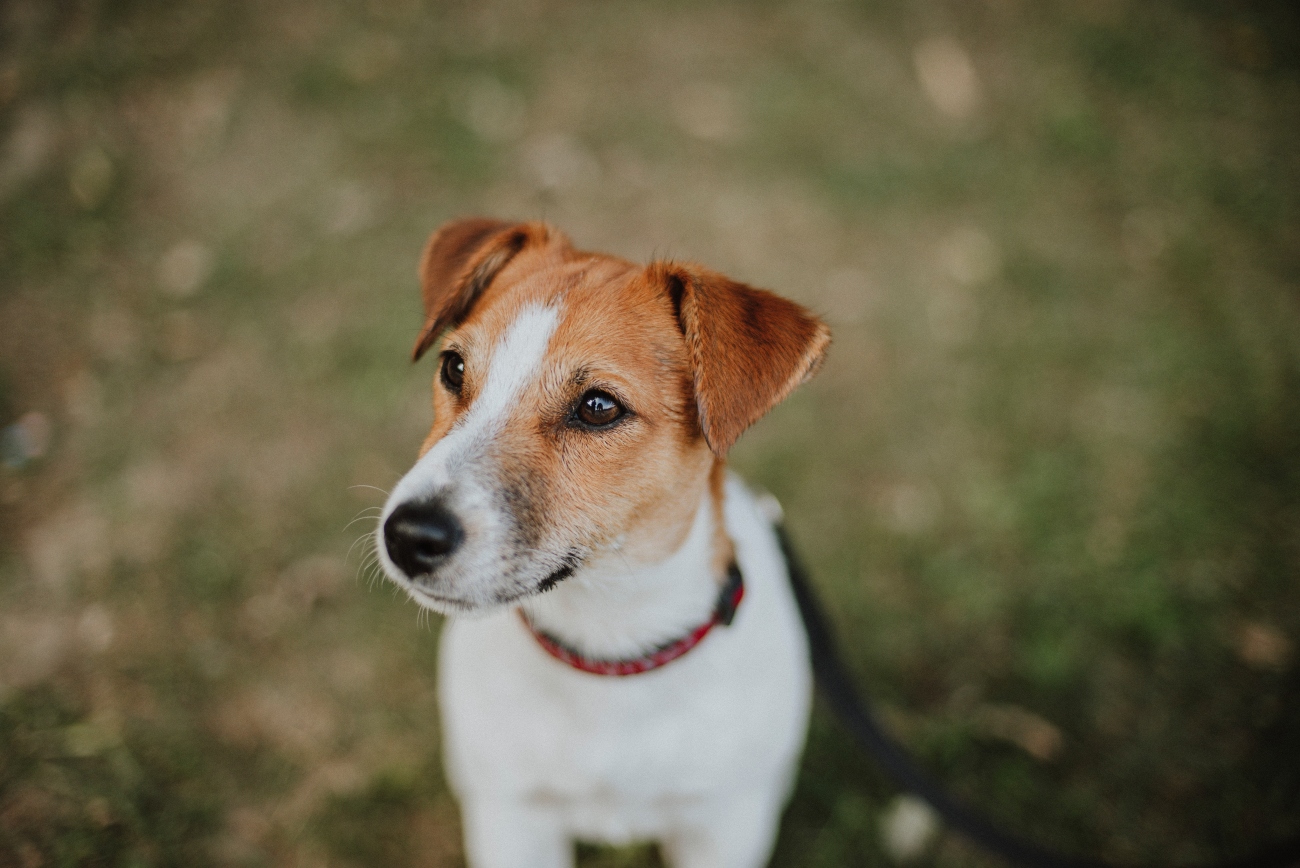
Small mongrel (up to 10kg)
A catch-all term, 'mongrel' refers to any dog that is a mix of two or more breeds – indeed, their alternative name is 'mixed breed'. The difference between a mongrel and a crossbreed – such as a Cockapoo, which we'll come to shortly – is that, in the mongrel's case, we are not exactly sure of the dog's parentage. On the other hand, a crossbreed pup has been deliberately bred using parents of two known breeds, to show off the best characteristics of each of those breeds.
Mongrels' precise parentage may be uncertain, but that shouldn't put you off owning one. In fact, just like crossbreeds, mongrels can often display the best characteristics of different breeds. There are thought to be around 150 million mongrels around the globe, so you won't be short of choice.
They will cost significantly less than a purebred (a dog bred from animals of the same species) and, indeed, less than a crossbreed, too. As a result, you may find that your dog cover premiums come in lower than for those types.
An added benefit is that a mongrel may have fewer health issues, because there has been less inbreeding (breeding between animals who are genetically very similar), as you may get with purebreds.
One other potential advantage is that mongrels can often have a very cute and individual look, based on that unusual mix of traits that they have inherited.
What health problems should you look out for?
On the other hand, you may find it harder to predict the personality and behaviour of a mongrel, as you won't know the precise mix of breeds (and therefore personalities) that has made them who they are!
Similarly, you may not have a precise idea of just how big they are likely to grow. You might end up with a bigger dog, with greater food, exercise and health needs than you bargained for!
Jack Russell Terrier
Among the most affordable purebred dogs to insure is the Jack Russell, a lively little terrier that loves nothing better than a nice big park and a ball to chase. Confident in temperament, Jack Russells make very loyal dogs, and like to keep themselves busy. As a result, they are especially well suited to active households.
Intelligent dogs who enjoy being around people, this breed is a popular choice for first-time dog owners. They don’t like to sit still for too long and generally want to be around their humans all day, every day!
What health problems should you look out for?
Like most purebred dogs, Jack Russells are prone to a certain number of health conditions.
Conditions that can affect Jack Russells include luxating patella, in which the kneecaps slip temporarily out of place; and primary lens luxation, a painful condition that results in blindness.
Jack Russells are also at some risk of late-onset ataxia, a condition that causes loss of balance and lack of coordination, and for which at present there is no treatment available.
If it's a Jack Russell puppy that you're thinking of, you should definitely ensure that the puppy's parents have had the correct health screenings. This will reassure you that your puppy is less likely to be affected by certain illnesses that are common in this breed.
This is just one of the steps we'd recommend taking before you commit to a puppy: we run through the various key things to think about in our article on How to buy a puppy responsibly.
We'd also strongly recommend arranging some pet insurance from the moment you take ownership, as this may help with the financial burden of any medical procedures and treatments that your Jack Russell might require.
Norfolk Terrier
Next in our list of affordable dogs to insure is another terrier, the Norfolk. All of the breeds in the terrier family were originally bred to hunt rats, foxes and other vermin (their name comes from the Old French chien terrier, or 'earth dog').
Norfolks are tough, brave little dogs who are also intelligent and curious. A love for digging, hunting and exploring is hardwired into their DNA. This is something to think about when training these creatures. They have an independent spirit, so even the most basic training may present challenges.
We'd definitely suggest a programme of reward-based training for your Norfolk. For indoor scenarios in particular, you'll probably find our ultimate guide to house training your puppy to be a useful read.
Norfolk terriers will require a certain amount of maintenance: for example, that thick, wiry coat will need to be combed twice a week. As for their physical needs, you should aim for an hour of exercise every day to keep your Norfolk at their healthiest and happiest.
What health problems should you look out for?
When it comes to health problems, this breed is somewhat prone to hip dysplasia, a lack of strength in the hip joint which leads, eventually, to arthritis.
They are also predisposed to certain eye problems. These include cataracts, in which the lens of the eye becomes clouded, and glaucoma, where pressure builds up within the eye.
Incidentally, if you've ever felt curious about how your dog sees the world, have a read of our article on what dogs see.
Cockapoo
A cross between a Cocker Spaniel and a Poodle, the Cockapoo is a very lovable breed, with its curly, shaggy coat, sociable and fun-loving personality, and bags of energy. Given these characteristics, Cockapoos make great family dogs.
In fact, as Cockapoos can be bred from a wide pool of parents, their appearance, size and personality can vary greatly. In general, though, they make for extremely friendly dogs who are easy to train.
In terms of time commitments, Cockapoos' long, curly coats need regular brushing: however, they are not prone to shedding, so they make good dogs for allergy sufferers.
They'll need around an hour of exercise a day – plus, being intelligent dogs, plenty of mental stimulation. Both their parent breeds were bred as retrievers, so it should come as no surprise that any Cockapoo will adore a game of fetch.
That sociable, intelligent character means that Cockapoos don't do well with being left alone for too long. If you are likely to be away from them for a few hours, leave them some stimulating dog toys and, if you can, ask a friend or neighbour to check in on them during your absence.
What health problems should you look out for?
Cockapoos are fairly prone to ear problems. These include conditions that affect the outer ear flap, the middle/inner ear, or the ear canal. The latter develops from irritation of the canal by grass seeds, parasites, allergies or infections. The result is an intense itch, which is distressing for the dog.
If an allergy is to blame, your Cockapoo will require lifelong treatment. As such, we'd recommend having some dog insurance in place when you start your Cockapoo ownership journey.
If looked after well, Cockapoos should live a long life, upwards of 13 years.
Cocker Spaniel
Following the Cockapoo in our list comes the breed that gives that dog half of its DNA. Yes, the Cocker Spaniel is another common British dog that packs bagfuls of fun and personality into its relatively small size. It's also a reasonably cheap breed when it comes to dog insurance.
Another lively, intelligent breed, Cocker Spaniels love to play, while that perpetually wagging tail always gives them a happy appearance.
Like all the other breeds we've discussed so far, Cockers are very good around humans. They're also very good at adapting to whatever conditions they find themselves in – so, whether you live in the city or the country, a Cocker should manage to make a happy home with you. Just make sure they get enough exercise and stimulus!
Cockers are somewhat prone to barking, especially if left alone for too long. If you find that you’re struggling to control your dog's noise levels, you might want to enlist the help of an animal behaviourist. The RSPCA website can help you locate the right sort of behaviourist in your area.
What health problems should you look out for?
The Cocker Spaniel can suffer from a number of ailments. Ear problems can affect this breed, as well as hip dysplasia and allergies. They are also known for Progressive Retinal Atrophy, an inherited condition where they can ultimately lose their sight.
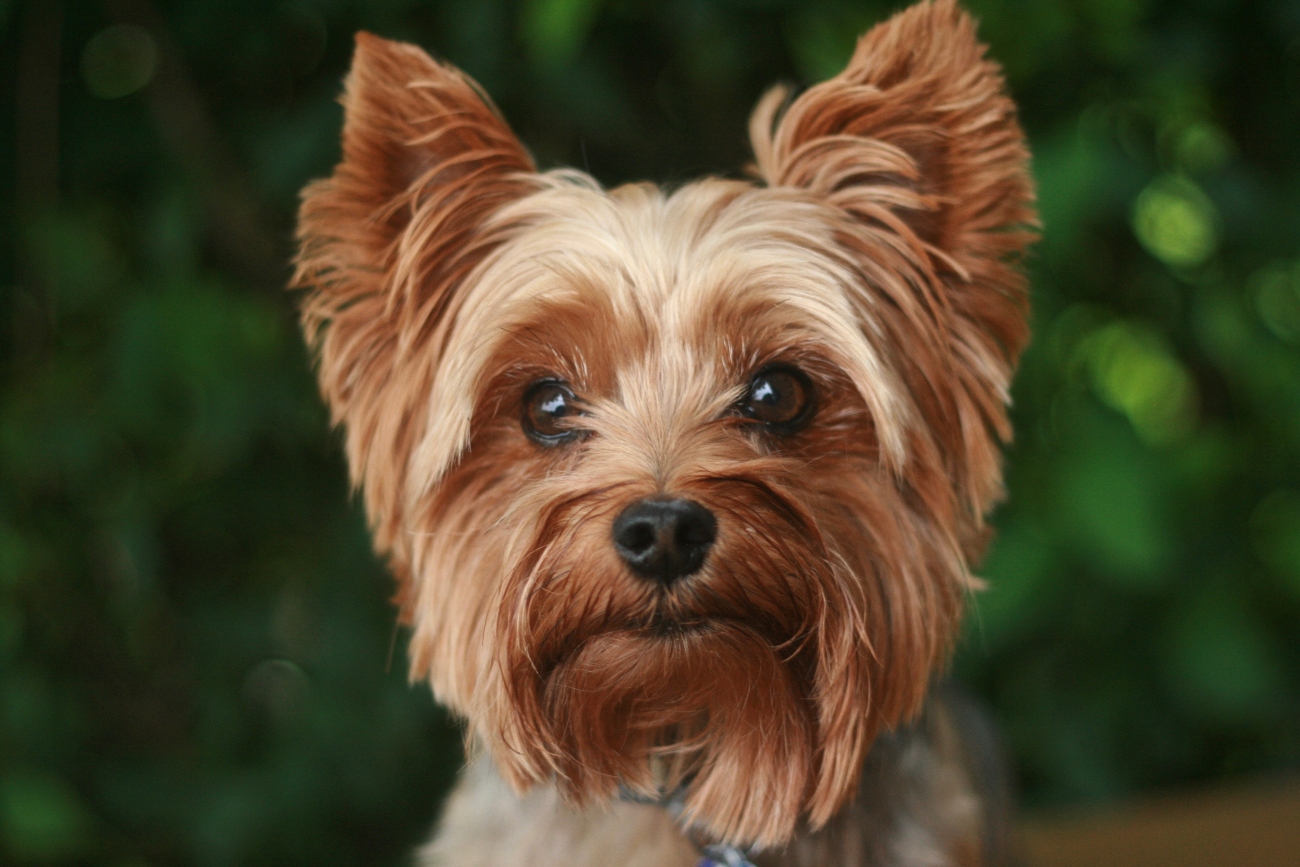
Yorkshire Terrier
The third terrier in our list, the Yorkshire Terrier (or 'Yorkie') is a perennial favourite among British dog lovers. Its personality, needs, and health concerns are broadly similar to those of the Norfolk Terrier above – but there are a few slight differences.
The Yorkie is a typical member of the 'toy' breed group. This group includes a number of small dogs who make perfect companions – they love attention, tend to be very friendly and affectionate, and don't usually require huge amounts of exercise.
For their part, Yorkies have a bold, fearless temperament, and don’t mind facing up to larger dogs if they need to. Like the Norfolks, they can be a little stubborn, and training can be challenging. You'll need a lot of patience – and plenty of rewards.
What health problems should you look out for?
Health conditions affecting Yorkies include bladder stones, when minerals accumulate in the bladder. These can be very painful for dogs, and can result in blood in the urine.
There are usually three main ways to treat bladder stones – non-surgical removal, surgical removal or dissolving the stones through the use of a specially modified diet. The first two options are likely to be expensive, so make sure you have some appropriate dog insurance in place.
Yorkies are also prone to dental problems. This is largely down to how their teeth are arranged in their smaller cranial features.
Regular tooth brushing is essential in warding off a variety of problems. These include tooth decay, gingivitis (gum disease) and periodontal disease, an infection caused by bacteria found in plaque.
You may require veterinary intervention for some of these problems. However, your dog insurance policy may be able to take care of some of the costs involved.
You might also find our blog post on how to look after your dog's teeth useful.
Miniature Poodle
Like Yorkshire Terriers above, Poodles are playful, adventurous small dogs. In contrast to Yorkies, however, this breed generally responds well to training.
As long as they get the right socialisation as puppies, Poodles will typically get on well with all members of the family – including both children and other pets.
That famously thick and curly coat takes some looking after, and you should get used to daily grooming in order to keep them in tip-top condition. They are also likely to require clipping and shaping, from a professional groomer, a few times each year.
They may have a reputation as rather an ornamental dog, but in fact Poodles love (and need) lots of exercise – around an hour a day, in fact. Running, retrieving, even swimming – they'll enjoy it all.
What health problems should you look out for?
Potential health concerns for Poodle owners to keep an eye on include Legg-Perthes disease. This is where the femoral head (the highest part of the thigh bone or femur) doesn't get enough blood supplied to it and starts to degenerate.
Mild cases of this condition can usually be managed through a mix of treatment and medication. Owners will also need to ensure that their Poodle doesn't become overweight, as this puts the joint under more severe strain. If the condition becomes serious, however, a vet may recommend surgery.
Poodles are also fairly susceptible to progressive retinal atrophy, in which the retina of the eye gradually deteriorates. The symptoms here can start with night blindness, before culminating in complete blindness.
If you have concerns about your Poodle's health, as a Purely Pets customer you will have access to our 24-Hour Vet Helpline where you can talk to fully qualified veterinary nurses about your dog's health problems.
Bichon Frise
These pure white and endearingly fluffy little dogs are extremely cheerful and intelligent, and thrive on human contact and attention. As such, they make excellent pets for a busy household. In particular, their playful character makes them excellent companions for children.
That luxurious coat does mean that Bichons need daily grooming, while coat trimming is required every couple of months – often by a professional groomer.
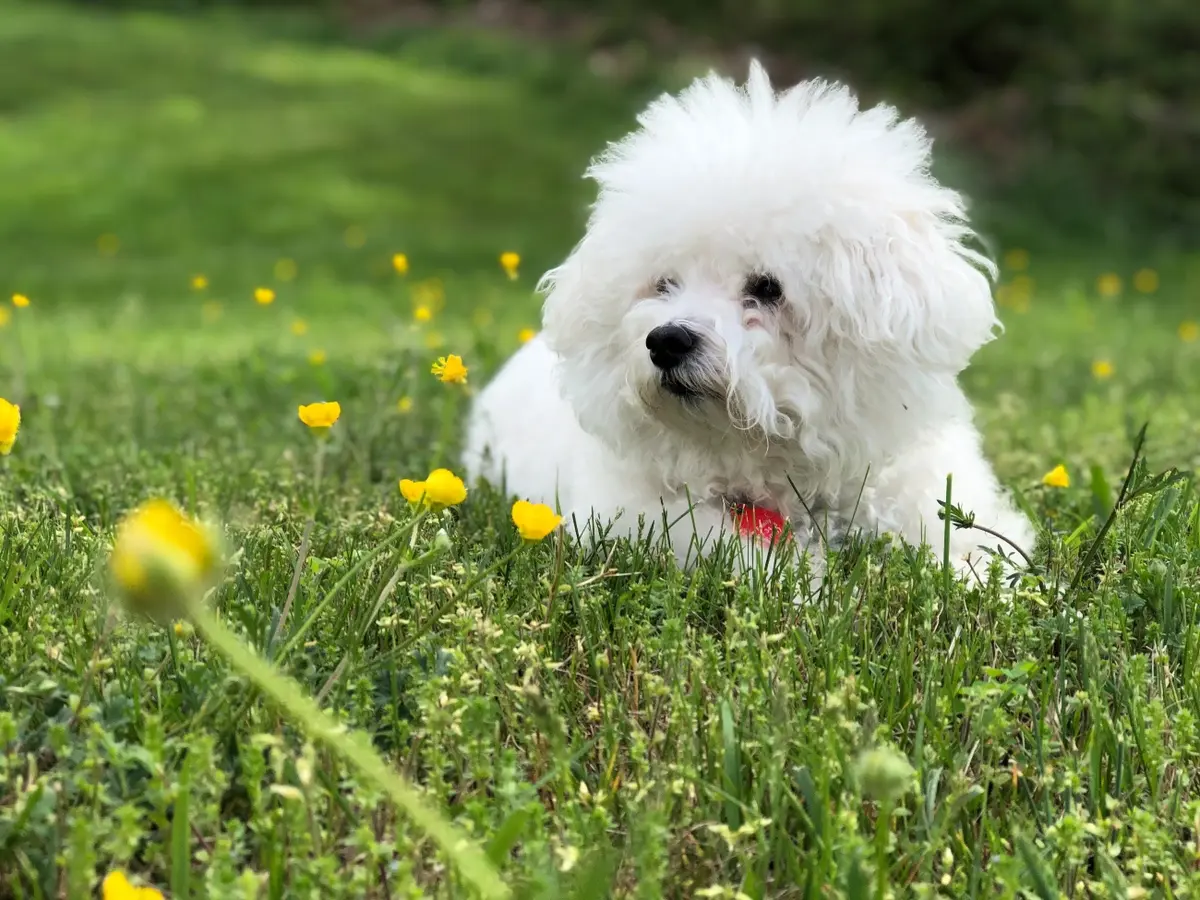
What health problems should you look out for?
Healthwise, Bichon Frises have more of a predisposition towards diabetes than other breeds. This condition occurs when the pancreas does not produce enough insulin, a hormone necessary for allowing sugars to absorb from the bloodstream into the cells around the body that require it.
The signs of canine diabetes are similar to those of the human form – namely increased thirst and urination, plus weight loss. The condition can be managed through the daily injection of insulin. Diabetic dogs, if properly medicated, can go on to live normal, active lives.
What are the most expensive dog breeds to insure?
Perhaps you’re wondering which dogs cost the most to insure? Here at Purely Pets, our data shows the most expensive breeds to cover include:
- French Bulldog
The squashed appearance leads to Brachycephalic obstructive airway syndrome (BOAS). - St Bernard
The beautiful St Bernard suffers from heart problems and skin conditions. - Irish Wolfhound
Stomach twists and enlarged hearts are a problem, also known as cardiomyopathy. - Great Dane
The Great Dane can suffer stomach twists, cardiomyopathy and joint problems. - Newfoundland
Hip dysplasia and arthritis are common in Newfoundlands.
That doesn’t mean that you shouldn’t own one of these amazing canines. Just be sure you can provide all the care they need and arm yourself with some specialist dog insurance so you’re prepared for vets bills in the future.
Choosing the right breed for you
When you first start searching for a puppy or dog, the sheer number of options out there can seem bewildering. Is a Cockapoo or a Cavapoo right for you and your household? Will a Beagle or a Bearded Collie better suit your family's active lifestyle?
Indeed, it seems that getting the right breed of dog – not to mention being sure about whether a dog will suit their lifestyle in the first place – is a hurdle many people are falling down on.
In the autumn of 2021, the Dogs Trust witnessed a 35% rise in dog owners giving up their animals for adoption as lockdown restrictions eased. It's clear that plenty of people took on a dog during the lockdowns, feeling the need for some companionship during tough times.
However, once restrictions were lifted and people were able to slip back into their usual routines, many were finding that their new furry companions no longer had pride of place in their lives.
With that in mind, here are three top tips for making sure you get the right breed for you and your family:
1. Speak to some dog owners you know about their experience
This is simply the best way to get a really good feel for the various aspects, both enjoyable and challenging, of dog ownership. An owner will be able to tell you what you need to know, from the costs of food, treatments and dog insurance, to how much time you'll need to commit to exercise and grooming.
2. Check out the dog owners forums online
Don’t have any dog-owning friends? Check out the doggy forums online and ask the owners there for their advice. You might even be able to borrow a dog for a short time to see first-hand how it fits into your lifestyle. Check out sites like Borrow My Doggy.com for more information.
3. Do your research into breeds
Key things to think about here are how much time you will have to exercise your dog, as some breeds need much more than others.
Certain dogs also need more company – if you and your household are all out at work during the day, a relatively independent species such as an Husky will adapt better than a Cocker Spaniel, who won't enjoy being alone for long periods of time.
These are just a few things to start thinking about. We have plenty more advice in our blog post - Tips for getting your first dog. And, if you’re buying a puppy specifically, we've got some advice on making sure this is the right choice for you and for your new companion: see our guide on how to buy a puppy responsibly for more information.
Dog insurance: lifetime protection
We hope this article has been useful for you as you consider which dog breed might work best for you and your loved ones. Whichever breed you opt for, remember to protect them with some specialist canine insurance.
Contact us for a quote today
Helpful Pages
Recent Posts
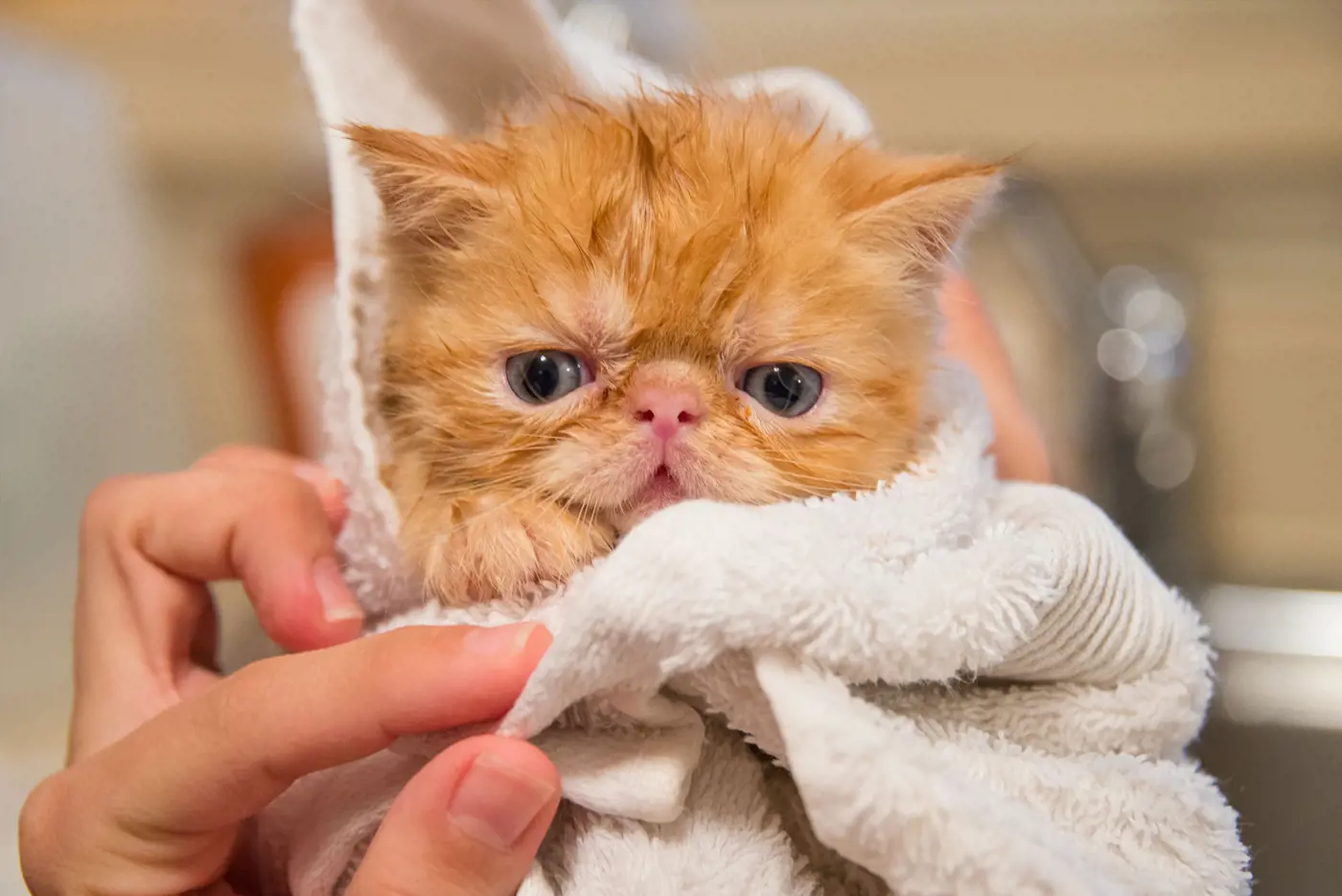
How to groom your cat properly
09/01/26Pet Insurance Quote
- 98% claims paid *
- Claims paid directly to vets
- 24/7 vet video consultations
- Interest free monthly payments
